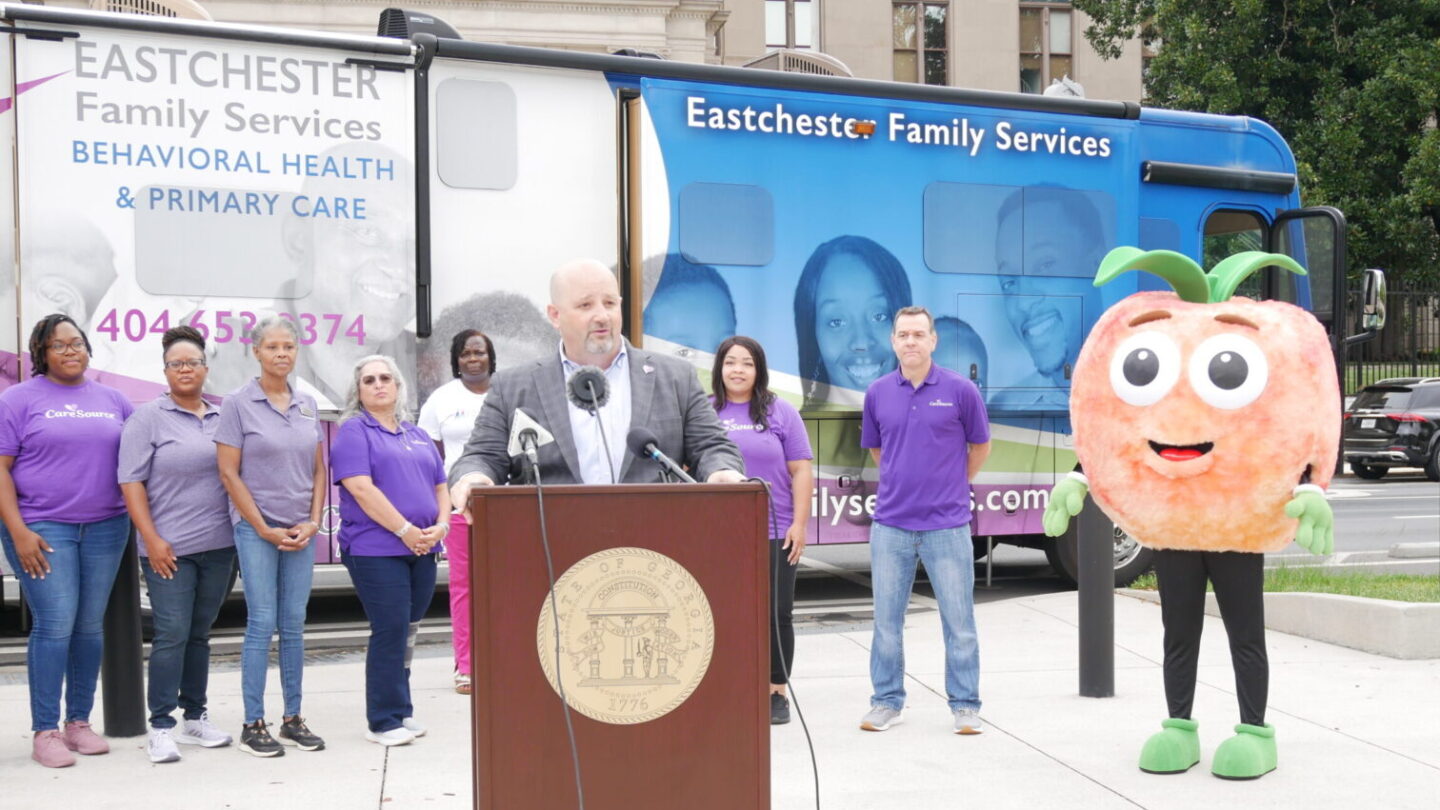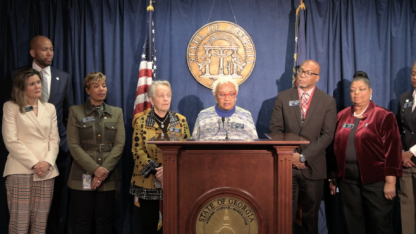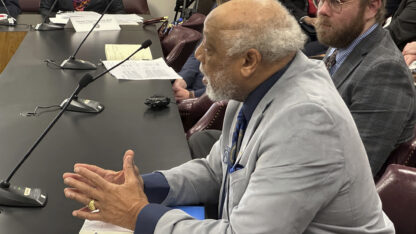More than a half million people lose health coverage during Georgia's Medicaid 'unwinding'

Georgia has so far dropped hundreds of thousands of people from Medicaid, mostly for administrative reasons such as problems with renewal application paperwork.
The cutoffs are stacking up as the state continues reevaluating everyone’s Medicaid eligibility with coverage after the end of federal COVID-19 public health emergency rules last spring. The nationwide process is known as “Medicaid redetermination” or “Medicaid unwinding.”
The pandemic emergency rules had prevented states from terminating anyone from their Medicaid rolls.
Now, to stay covered, everyone in the program has to reapply. In Georgia, that’s nearly 2.8 million adults, as well as children with PeachCare for Kids.
“A lot of them are just not sure what that means,” said Deanna Williams, an enrollment assister at the nonprofit Georgians for a Healthy Future.
She said many of her clients are surprised to learn their coverage is suspended.
“It’s typically they’re finding out when they’re either going to a pharmacy or going to a doctor’s office and they’re having that visit,” she said.
“For them, that means they may be without medication for a week or two, or sometimes a month, depending on how long this process is. So it’s hard to get those calls. I try to take the extra step to see how we can help them during that process and waiting period. That’s how I try to help my clients through it.”
To help Medicaid members avoid losing coverage, Georgia is sending out individual notifications and advising them to update their contact information in the state Gateway system proactively.
But Williams said many people either haven’t gotten that message, or have attempted the process but made mistakes in submitting their renewal paperwork.
So far, Georgia has cut off more than 504,000 people just for these types of administrative issues, with another almost 93,000 people deemed ineligible.
Anyone whose coverage is terminated has the right to appeal, but Hinesville social worker John Terry said even a temporary disruption in coverage can have a big impact on families.
“Their lives are impacted greatly when there’s a delay on people processing paperwork or something getting lost in the mail, or even on the side of the clients — members not getting the paperwork back on time,” Terry said. “All of these things can cause delays.”
His agency provides in-home care services through a Medicaid waiver program to households across the state with individuals who need help with daily living activities.
And roughly 10% of his clients have lost their Medicaid temporarily, he said.
“There are people who can’t get out of bed, they can’t get to the restroom, they can’t get their meals. They can’t go get their medicine.”
Terry said the paperwork-heavy redetermination process can be complicated for people in this situation.
“We deal with the population who may not be able to get documents back and forth or communicate as well as the general population,” he said. “It’s an elderly and disabled population who may not have as much access to things like transportation or the internet.”
Terry, who has worked since the 1980s with people who receive Medicaid, notes that he’s seeing longer-than-usual delays for new applicants trying to get into home-care services for the first time during the redetermination.
“I’m always looking for things to get better and I think they will. It’s just, right now it’s unusually slow and there’s an unusual delay because there’s unusual things happening.“
For their part, Georgia Democratic lawmakers, including Sens. Jon Ossoff and Raphael Warnock and Rep. Lucy McBath, have expressed concern about tens of thousands of children losing Medicaid.
They sent a recent letter to Gov. Brian Kemp, saying nearly 150,000 Georgia children “lost health coverage from March 2023 to Sept. 2023 … [and] have been unable to reenroll due to the state’s mismanagement of Medicaid redetermination.”
Gov. Brian Kemp’s office has repeatedly pushed back on the criticism.
A spokesman for the governor said Georgia has added more than $50 million in funding and dedicated more staff to processing Medicaid renewal applications and streamlining the redetermination process.
So far, Georgia has processed about half the state’s Medicaid population.
It has until this summer to complete the rest.








